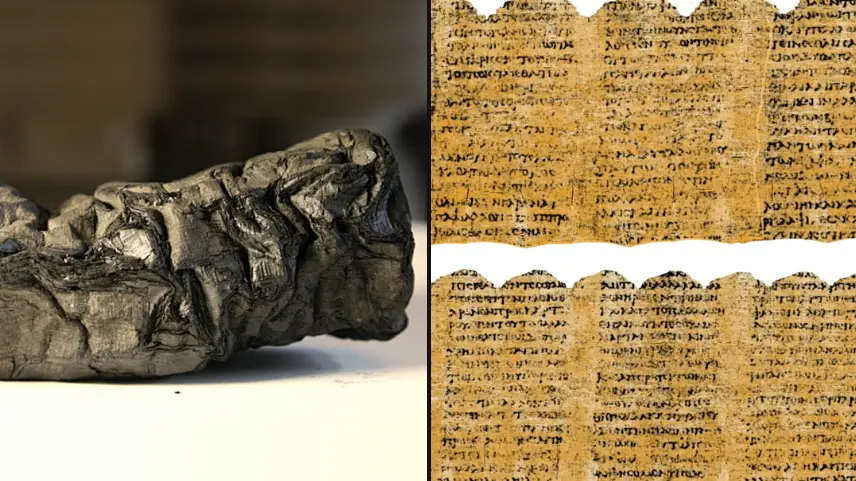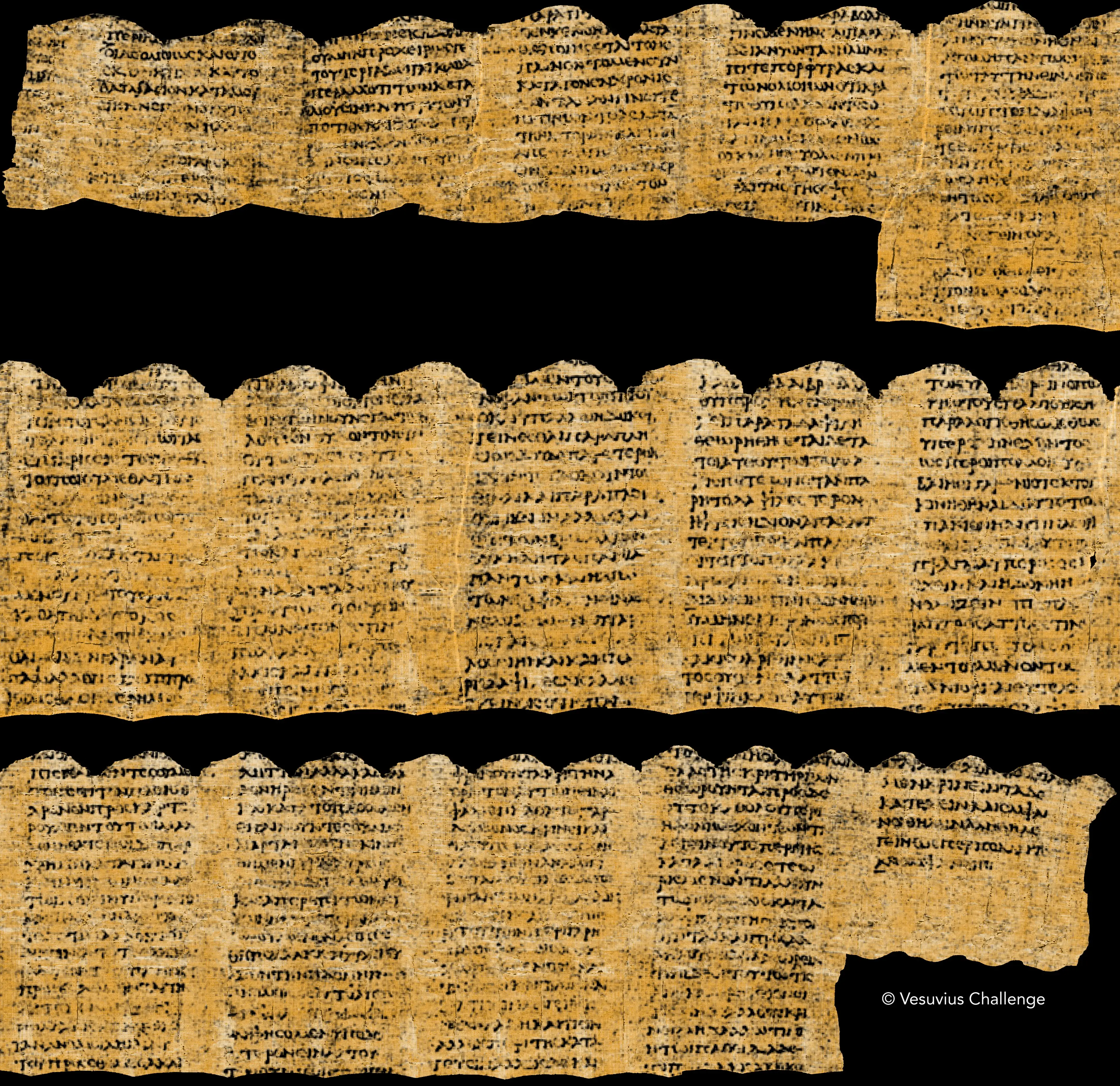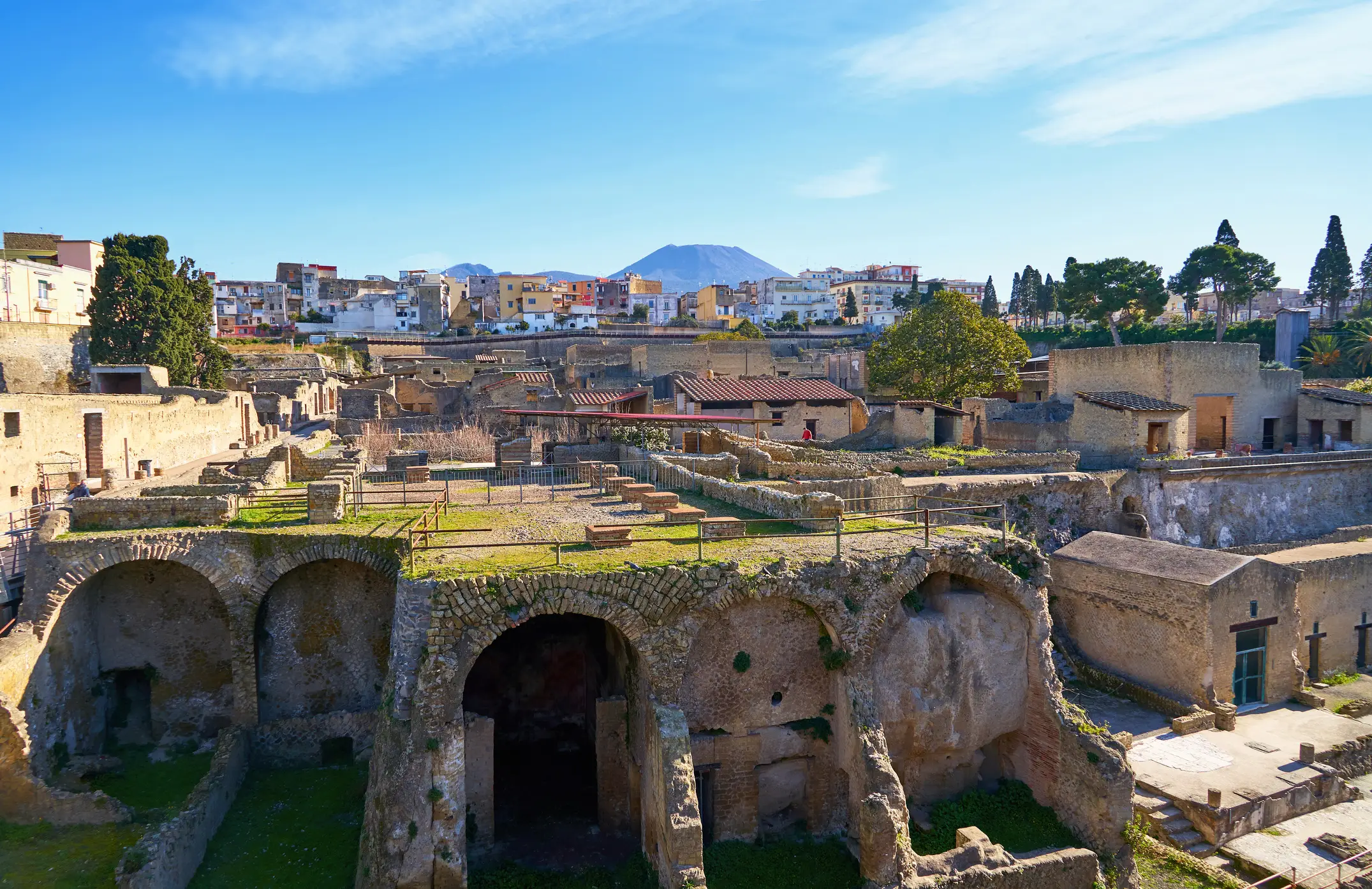
An ancient scroll from almost 2,000 years ago has finally been decoded.
Quite the step up from the bits of hieroglyphics we ‘learned’ in primary school Ancient Egypt classes, this needed the help of artificial intelligence (AI) to be worked out.
The Herculaneum papyri are made up of about 1,800 scrolls and ended up buried in ash after Mount Vesuvius erupted in 79AD.
Advert
These scrolls were excavated from an ancient Roman villa but it’s been an absolute slog trying to unroll and read them.
So, the Vesuvius Challenge was set up in March 2023 to try and decode the them, offering a mega prize pot of $1million (£796,000) to crack it.
Papyrologists (yes they’re a real thing) worked with the contest, believing the Roman scroll contains ‘never-before-seen text from antiquity’.
And three students managed to read 15 columns in a scroll, helped out by AI-powered coding machines.
Youssef Nader in Germany, Luke Farritor in the US, and Julian Schilliger in Switzerland will get to share the $700,000 (£557,000) prize after managing to read over 2,000 letters.

Nat Friedman is one of the challenge’s organisers and TIME reports that after printing out the winning submission he said: “All this has been in this dreamlike digital world in my imagination before.
“Seeing it on paper, rolling it up, it just made it so tangible.”
This winning submission totals four passages, each of 140 characters. TIME explains: “With at least 85% of the characters in each of those passages recoverable by professional papyrologists. It also contains a further 11 columns of text.”
The text in question is a piece of Epicurean philosophy on the subject of pleasure. The winning submission shows ancient Greek letters on a large patch of scroll, and the author seems to be discussing the question: are things that are scarce more pleasurable as a result?

The author, whose identity is unconfirmed, doesn’t think so: “As too in the case of food, we do not right away believe things that are scarce to be absolutely more pleasant than those which are abundant,” one passage from the scroll reads.
In the final section of the scroll, the author appears to criticise his intellectual adversaries, who 'have nothing to say about pleasure, either in general or in particular, when it is a question of definition'.
Professor Alice Roberts dubbed this discovery ‘the archaeological discovery of my lifetime’.
Although, there is a whole load to be discovered with the combined efforts of the Vesuvius Challenge resulting in about five percent of one scroll being read. And the contest confirmed on X: "In 2024, our goal is to from reading a few passages of text to entire scrolls, and we're announcing a new $100,000 grand prize for the first team that is able to read at least 90% of all four scrolls that we have scanned."
Topics: World News, Artificial Intelligence, Technology